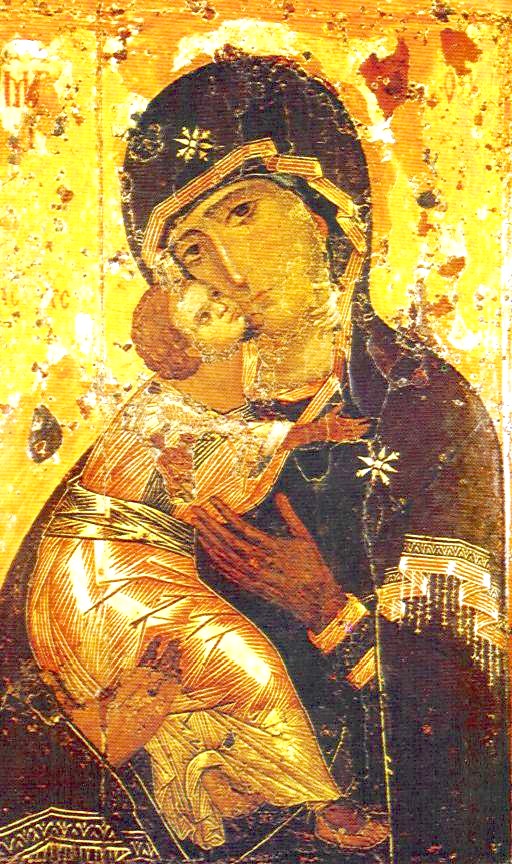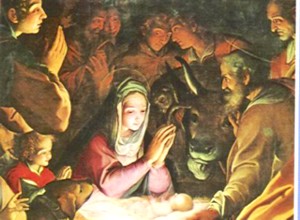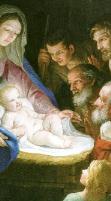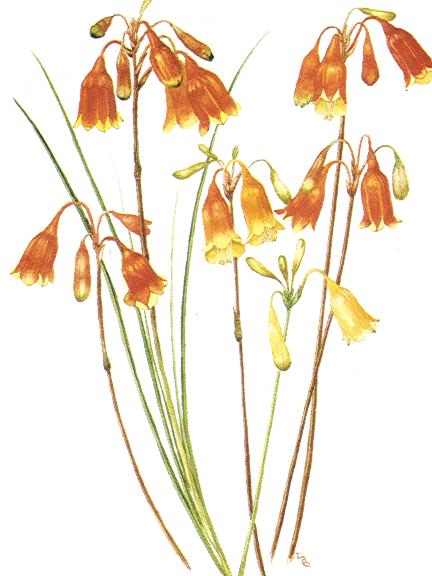MARK FRANK AND CHRISTMASS
One of the least known of the Caroline Divines is Mark Frank, yet his sermons are in my mind the high-water mark of preaching amongst these Divines in the seventeenth century. Like Andrewes he was a Pembroke graduate, fellow and an eventual master, howbeit but briefly before his death after the Restoration. Unfortunately for the Church the cream of his life was spent during the Civil War and Interregnum after being ejected from his college by parliamentary visitors under the Earl of Manchester when he would not sign the Solemn League and Covenant in 1643. During this time we know hardly anything about his whereabouts except that he still managed to preach. In his sermons we have glimpses of his hardships such as on St. Stephen’s day when he spoke of this Christian martyr as being a comfort “in the saddest distresses”.
In the first of the nine extant Christmas sermons Frank illustrated how Christmas Day fulfils Isaiah’s prophecy. The Christ Child is “the Branch that grows out of Jesse’s root … He is the very only He whom God has set up ‘for an ensign to the people,’ to whom all the Gentiles flock in, to whom rest and glory both properly belong; the only ‘root’ too from whence all good things spring, or ever sprung, either to Jesse, or David, or any other. Frank posed the question, how did this stem of Jesse spring into life? It did so from “the dews of heaven” that watered the root when “the heavenly showers” fell on the Blessed Virgin. Yet Christ is not only the stem or rod but also a “branch” with at least two “boughs” that show “His divinity and … humanity”. This branch also flourishes and blossoms into something of beauty, even when severed, evident in Christ’s passion. Just as a flower does not lose its scent when cut off, neither did Christ when “broken and bruised upon the cross”. Frank explained in the words of Ambrose that when He was here taken off from the stock of the living, the blood that issued out of his wounds made his beauty more fresh and orient; and His bruising there extracted from Him so sweet an odour, that even still every day raises the fainting soul out of its swoon, and revives even the dead, that they flourish out of their graves by a resurrection to life eternal.’ There are always new shoots from the branch that are pliable as Christ is prepared “to be wound and turned any way for our service ... [and] to become all things, for our good.” One example of this is Christ “will comfort us when we are ready to die.” This root of Jesse will also be an ensign to draw people to Him. His ensign shows that“ He was born, to gather the straggling world into one body, to unite the Jew and Gentile under one head, to bring the straying sheep into one fold,” and indeed “to draw [all] …into one heavenly banner of the Almighty, under the command of heaven.” The colours of Christ’s ensign are easily recognisable, as those of “blood and water” while “the staff that carried the colours” is like a cross. Thus it is “by … the two sacraments” that we come “to Him”, and when “the word or Gospel [is] preached” the flag is waved “to invite all people in.” We should never be ashamed of our ensign and “fight under it” once we have been baptized, preached Frank. Under this ensign Christians can also find “rest” in the Church and “in the holy mysteries of the blessed Sacrament”. Thus we have no excuse not to find Him and be nourished. By this we too can be rooted in Christ’s humility and sprout “all good works”. In this way we shall be ready when “this Root will appear the second time, and blow up His trumpet.” Hopefully we can then “celebrate the praises of this Root and Branch of Jesse, and enter joyfully into His rest, into the rest of everlasting glory”.
The Second Christmas sermon opened with a beautiful praise of Mary who gave birth to the Son of God, and “placed him in a manger”. It illustrates the poetic and beauty of Frank’s style.
I shall not need to tell you who this ‘she,’ or who this ‘him.’ The day rises with it in its wings. This day wrote it with the first ray of the morning sun upon the posts of the world. The angels sung it in their choir, the morning stars together in their courses. The Virgin Mother, the Eternal Son. The most blessed among women, the fairest of the sons of men. The woman clothed with the sun: the sun compassed with a woman. She the gate of heaven: he the King of Glory that came forth. She the mother of the everlasting God: he God without a mother; God blessed for evermore. Great persons as ever met upon a day.
This sermon Mary is particularly honoured. Mary “brought forth a son” is reiterated throughout. Indeed the “business” of the day “is between two persons, the mother and the child” Mary is “the tender mother,” the “happy mother” who wraps her child, her first-born and places Him in a manger. The very first step in “the only begotten Son of the Immortal God” revealing His humility was to be born of “a poor carpenter’s wife” Would it have been preferable for a lady or even a queen to be “Queen of Heaven and Mother to the heir of the world?” No, said Frank, “It was the lowliness of this holy handmaid that he looked to,” and in whom “the Eternal Wisdom” chose to dwell. So our Lord left “the Father’s bosom for the Virgin’s womb.”
In the third sermon Frank stressed how we all receive “a great grace to-day by his coming” as it is a day for the giving and receiving of gifts for all peoples when Christ gives of His immeasurable fullness. He elaborated.
His fulness nothing so stinted, as some narrow and envious souls will have it; here is enough for all - enough for the whole world to take, and yet leave all full still. You may light a thousand candles at once, and yet the light of it no way lessened by it. You may fill a thousand worlds, if there were so many, from his fulness, and yet he never a whit the less full. Take all you can cope, all that will, no, all who are or will be, here is still for all, as much as the first.
What is it that we receive in this fullness? It is grace. Christ gives us grace that we may in turn “show it unto men [and] … to increase and grow in it daily more and more till both it and we come both to perfection.” Christ’s fullness gives us all we need: adoption, redemption, forgiveness, and eternal life. It is only in Christ that we are saved and receive grace, and so we must never lose Him. We must remember:
In the fourth Christmas sermon Frank preached on the theological heart of this feast -Christ took our flesh in order to save sinners. As he expressed it, “Of all days in the Christian Year, this is the most acceptable day to preach on such glad tidings,” as each one of us should see ourselves as “the chief of sinners” and thereby receive joyfully this good news. It was this that the Angel Gabriel had foretold at the Annunciation when he told the Blessed Mary that her child would be called Jesus as it means “‘For he shall save his people from their sins,’” by calling sinners “to repentance”. This good news is that Jesus came “‘for the sin of the whole world’” for St John’s gospel tells us that none is excluded from the kingdom of God. Jesus also came to save those who had gone before Him. The whole world, be it as large as it will, and the sins of it, be they as great as they can, and all the sins of the world indefinitely, be they whose they will in it; for wicked Manasses’ as well as good Hezakiah’s; for Noah’s drunkenness, Lot’s incest, David’s adultery, Solomon’s idolatry, S. Peter’s apostasy, S. Paul’s persecuting and blaspheming, for all sorts of sins and sinners. The other theological lesson from this feast is that without the saving grace of our Saviour our nature would remain “wretched” but with Christ’s coming we are sustained throughout all our trials.[Christ] will stick close to us in all distresses, disperse the terrors of our sins, defeat the devices of the devil to disturb and fright us: this will support us in our weaknesses ,sustain us in our faintings, raise us out of our despairs, relieve us in our sicknesses, ease us in our pains, refresh us in our agonies, comfort us on our death-beds, revive us when we are even dead, go with us out of the world, and never leave us till it has brought and laid us at His feet who came to save us, and is ‘not willing that any should perish,’ – no, not the greatest sinner, not any, first nor last. Although our salvation is a free gift we have to accept it. Frank intimated this was a Christmas obligation for us for without it we cannot enter heaven. So we must treat it like treasure. We show our grateful hearts by bringing forth spiritual fruits. One special way we show our thankfulness is to present ourselves upon this feast in a reverent and gracious manner, the climax of which is to receive Him “under the blessed elements”.
In the fifth Christmas sermon Frank spoke of “the beauty, and grace, and blessing that we see in [Christ], and find by him.” God has not only “blessed him for ever” but also blesses us by this day. This “excellent beauty … [and] eloquence of Christ is fairer than any other beauty, as He is without sin. Indeed His beauty began with His conception and was manifested all his life, even in death. Yet there could never be any real beauty without grace. So if we desire to be truly beautiful then we must always ask for grace as what really makes a person have beauty comes from a beautiful soul. Frank was perplexed why contemporaries who were always seeking out beautiful things did not spend time seeking out Christ who is far lovelier than anything. “Christmas Day is a blessed day to find the beautiful Babe not only in the manger but also upon the altar. So let us “‘taste and see how gracious the Lord is;’ see and behold how fair he is, how amiable and lovely; and be ravished with his beauty and sweetness, and never think we can be satisfied with it, with seeing, or hearing, or blessing him, but be always doing so for ever.”
“Blessed be the Lord of Israel who has visited us” from the Benedictus in Luke’s Gospel is the text for the Sixth Christmas Sermon. “It is a blessed day” indeed when our Saviour visited us at His birth as “we had even lost our natures and our names, even the best of us” to the devil and death. Frank posed the question why should the Lord venture to visit us? He listed seven reasons: 1. “grace and honour,” 2. “charity,” 3. “service,.” 4. “brotherly love and kindness,” 5. “abundant mercies,” 6. “friendship”, 7. “friendship that holds to death.” Above all His visit brought redemption from a four-way captivity: 1. “the world”, 2.“sin”, 3. “death”, 4. “the devil.” Was “good old Zachary too quick” in making his prophesy?” No, stated Frank. Elizabeth’s response to Mary revealed that the Saviour had already been conceived and that He was already saving us from “the hands of our enemies” although that would end at “a mighty price”. In turn many mighty works flow from this. Our response to this should be to acknowledge all these blessings publicly in church, especially on His day, Sunday. It is on this day that we also receive “His body and blood”, one of the greatest blessings indeed.
In the seventh Christmas sermon Frank preached on one of “the most important Christian doctrines, kenosis when he took as his text, “though he was rich, yet for your sakes he became poor”. As the Fathers had, he stressed that Christ’s poverty was to make us rich in salvation by outlining the various ways that Christ manifested His kenosis. Although many had expected the Messiah to be “rich” He who is “Christ, the King of Israel, the great Prophet, the everlasting High Priest; and Archbishop of our souls” chose to live humbly, take our human nature and be “poor” from the beginning.
In his eighth Christmas sermon Frank addressed the implications from his text “What is man?” The first to be considered is what God has done for man by making “such a crumb of dust …. to have dominion over the works of his own hands; [and] that he should put all things in subjection under his feet; that he should make the heavens, the moon, and stars for him.” Further implication of God’s mercy to this mere “piece of clay” and a “pierce of misery” was indicated in these six ways by Frank.(1.) He was and is ever ‘mindful of him.’ (2.) He ‘visits’ him. (3.) He ‘made him but a little lower than the angels,’ but one step below. (4.) He did that only, too, to exalt him, ‘to crown him,’ as we read it. (5.) He crowned him also. (6.) He crowned him ‘with glory and with worship too.’ More marvellous still is that God should allow His Son to take our flesh in order to “raise[man] to glory again and restore the dominion when he had lost it.” Frank believed that we should be lost in wonder, love and praise when we contemplate what God has done for us in His mercy, especially in crowning us, a mercy He had not bestowed on the angels. As our Saviour has rescued us from our misery we should “honour” that name which is above all names in the appropriate way as suggested by Paul, by bending the knee or bowing when the name of Jesus is mentioned. Yet we too receive honour by Christ’s birth if we but “humble ourselves” we too will “be exalted and crowned with glory.” This honour will be greater than that given at creation as it has been bestowed through Christ’s redemptive work.
The ninth Christmas sermon focused on salvation, as indicated in those words of Simeon from the Lucan text, “For mine eyes have seen thy salvation, etc.” So Christmas time is always a special time to rejoice in knowing that we have a Saviour. “Salvation cannot but be a welcome, then, at any time. I know no day amiss; but in die salutis, at such a time as this, on Christmas-day especially: then it first came down to bless this lower world,” preached Frank. The really good news from this text is that it assures us that salvation is for all – both Jew and Gentile. In God’s plan “none perish”. So what could be happier news on this day of great happiness and joy. For Simeon who spoke these words at the presentation of Christ in the temple, his day of salvation or his Christmas day is really our Candlemass. He who had known many saviours from his Jewish past such as Moses and Joshua at last beheld with his own eyes the promised Saviour who was no longer “locked up in heaven.” and our eyes should behold Him as Simeon’s did. Indeed Simeon’s expression of dying in peace brings assurance that “Death now itself is conquered”, and he who is first “to die is to be saved.” As well as Christmas being “a deliverance” from eternal punishment that threatened man after Adam had sinned, we are also delivered from the tyranny of death. All this is done for pure love’s sake. Yet this plan for man’s salvation was set in motion a long time ago when Adam fled and hid himself. “The promise of the woman’s Seed stepped in between man and the expulsion. From that moment God was preparing to fulfil this promise through the history of the Israelites beginning with the “patriarchs; Moses and the prophets; of promises, types, and figures, and prophecies, for the space of four thousand years. Then comes the Saviour and with Him salvation.”
On the other part of his text, “To be a light to the Gentiles” Frank preached, we all need light to see, although eventually there will come a time when our eyes will bedimmed and we shall pray, “Lighten mine eyes, O Lord, that I sleep not in death.” Before this we need a light “to reveal my inmost thoughts, to show me the ugly deformity of my sins, … a light to show us the darkness we are in …by the inspiration of the Holy Spirit, .Lumen divinae revelationis, salvation by the glorious light of divine revelation.” Our salvation is as near as following Simeon’s example and take Jesus in our hands by receiving Him at the Eucharist.






